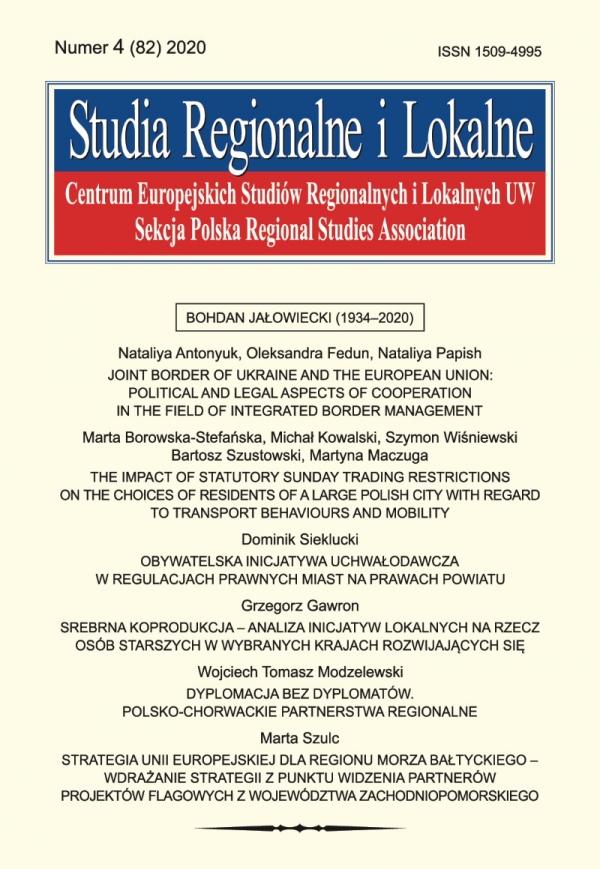Issue:
4(82)2020
Marta Borowska-Stefańska, Michał Kowalski, Szymon Wiśniewski, Bartosz Szustowski, Martyna Maczuga
The Impact of Statutory Sunday Trading Restrictions on the Choices of Residents of a Large Polish City with Regard to Transport Behaviours and Mobility
DOI: 10.7366/1509499548202
The Impact of Statutory Sunday Trading Restrictions on the Choices of Residents of a Large Polish City with Regard to Transport Behaviours and Mobility
The main purpose of the paper is to recognise the impact of statutory Sunday trading restrictions on consumer behaviours (shopping time) and mobility (activeness, motivation, modal division) of residents in Łódź, one of the largest Polish cities. An additional aim is to determine the independence of the indicated elements for selected features of the surveyed residents and their households, for which purpose a two-stage questionnaire survey was conducted among the residents/dwellers of Łódź. The first stage was performed during a week following a non-trading Sunday, and the respondents were asked to refer specifically to the previous Sunday. The second phase was carried out during a week immediately following a trading Sunday, with the questions focused on that particular Sunday. The returned results showed that the main factor determining the time when people do their shopping to make up for a non-trading Sunday is their professional Sunday activity. The answers also revealed that the residents of Łódź chose an inactive and rather a “couch-potato” lifestyle on the analysed Sundays, whether trading or non-trading.
Affiliation:
Marta Borowska-Stefańska: University of Lodz, Faculty of Geographical Sciences, Institute of Built Environment and Spatial Policy, ul. Kopcińskiego 31, 90-142 Łódź; ORCID 0000-0003-2448-4778;
marta.borowska@geo.uni.lodz.pl Michał Kowalski: University of Lodz, Faculty of Geographical Sciences, Institute of Built Environment and Spatial Policy, ul. Kopcińskiego 31, 90-142 Łódź; ORCID 0000-0001-7082-5161;
michal.kowalski@geo.uni.lodz.pl Szymon Wiśniewski: University of Lodz, Faculty of Geographical Sciences, Institute of Built Environment and Spatial Policy, ul. Kopcińskiego 31, 90-142 Łódź; ORCID 0000-0001-5488-5949;
szymon.wisniewski@geo.uni.lodz.pl Bartosz Szustowski: Student, University of Lodz, Faculty of Geographical Sciences, ul. Kopcińskiego 31, 90-142 Łódź;
b.szustowski@wp.pl Martyna Maczuga: Student, University of Lodz, Faculty of Geographical Sciences, ul. Kopcińskiego 31, 90-142 Łódź;
martyna.maczuga@o2.pl 


